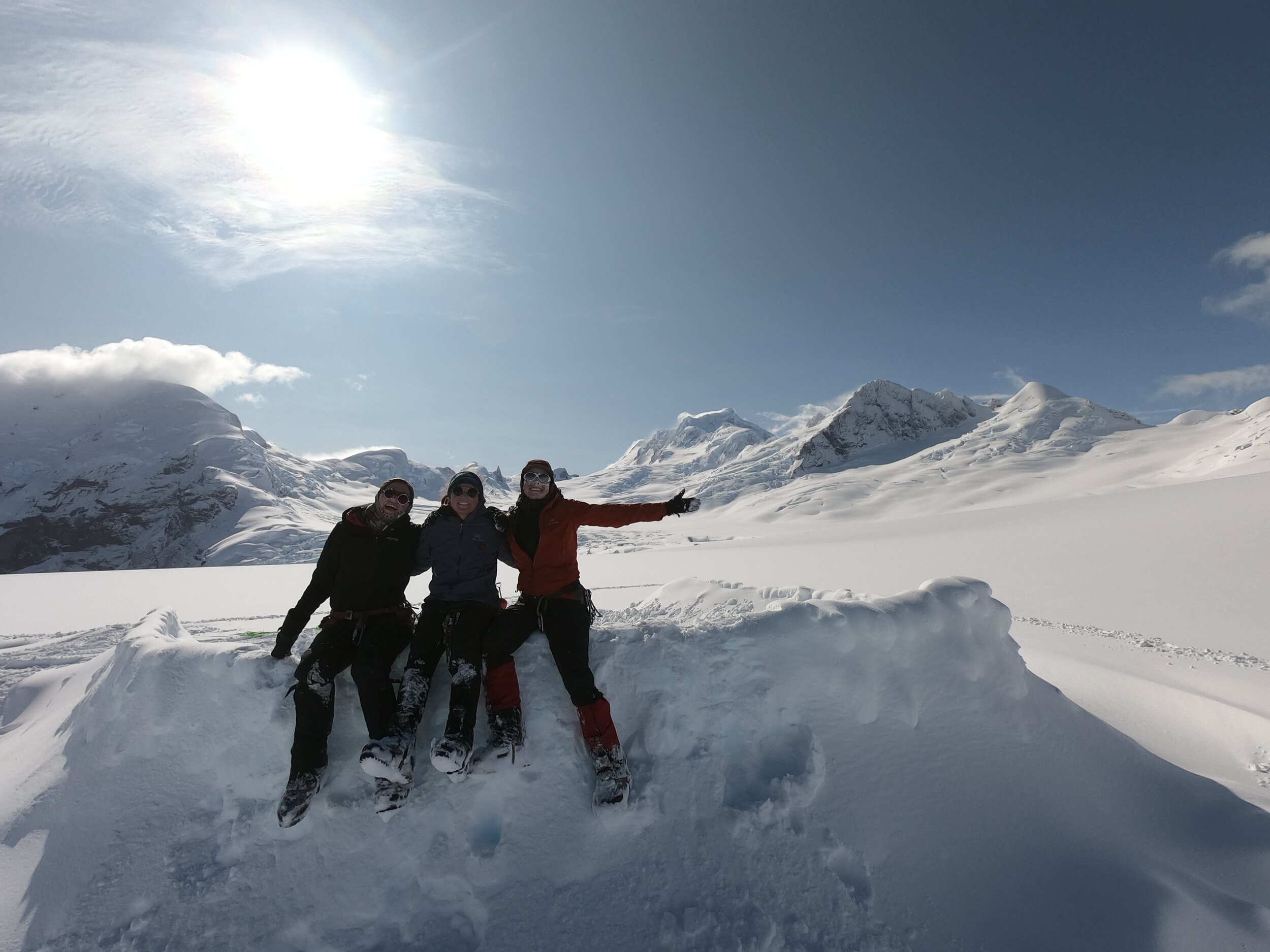Good Expedition Behavior
NOLS expedition 2019, Yukon Territory, photo taken by Alex MelisWhether you are traveling alone or in a group, how you behave in the backcountry matters.
One of NOLS seven leadership skills is known as “expedition behavior”.
As someone who has spent 192 days in the field with NOLS, I hold this particular leadership skill in high regard. And that’s because it directly impacts myself and everyone around me.
Having good E.B. means that I put group goals before personal ones, it also means I actively look for ways to support my trip mates—even when I arrive to camp bone tired, and all I want to do is curl up in a ball at the foot of my sleeping bag.
If everyone on trip puts the good of the expedition first, we all benefit.
Camp gets set up and broken down efficiently (even in bad weather) if everyone helps out before peeling off to do personal chores. If only one person is left to set up camp in a windstorm, well, there won’t be a dry place for anyone to pile into even if they do manage to pull fresh socks on.
Expedition behavior is an essential component of group success.
Helicopter resupply on glacier, NOLS expedition 2019, Y.T., photo taken by Alex MelisI’ve had the privilege of going on expeditions in places like Yukon Territory—where I lived on the tundra for 30 days—and Patagonia—where I spent 38 days traversing the Northern Ice Field and another 40 days paddling a sea kayak in the Pacific, though the Chonos Archipelago.
Each time, I was just one member among 11-15 other people. And I couldn’t have accomplished what we did as a team, alone.
I remember watching my instructors operate like a well-oiled machine, arriving to camp and immediately taking up specific responsibilities. Their kitchen was always set up within ten minutes, the same as their tent, and as soon as the stove was primed, someone was boiling water while another person blew up everyone’s sleeping pads.
Only when group chores were finished did they break off to take care of personal needs.
Ultimately, dividing and conquering allows for more time to relax, and relax they did. My instructors were master campers, savoring every moment we spent in the wilderness, finding comfort in the smallest of things, laughing in the face of disaster. I studied their way of being and knew it boiled down to good E.B.
Instructors Michelle, Rodrigo & Kevin, NOLS expedition 2020, Patagonia, photo taken by Ivey Smith If everyone plays their part in helping the expedition along, we find our individual parts become less overwhelming.
It is an amazing feeling when someone hands me a baby-Nalgene full of hot chocolate on a dreary day in the backcountry, especially because I know when it’s my turn to be the chef, I will do the same for them.
We all GET to contribute to the overall success of the mission—it’s a privilege.
In Patagonia, my NOLS group—with the guidance of our skilled instructor team—traversed the northern ice field. It was an exploratory route and none of us knew if we could accomplish what we had set out to do.
It was a rugged, windy, alternately frigid and baking hot, experience. And when I finally stepped off the ice sheet onto solid ground, it felt amazing to know I had given my all to the expedition, an expedition that was ultimately successful.
Early morning scout: Ashley and Ivey, NOLS expedition 2019, Y.T. photo taken by Morgan GrooverBeing an intentional adventurer is just another way of practicing stellar expedition behavior.
Even when I am traveling alone, I do my best to practice good E.B.
I repair my gear when it breaks, I plan ahead when it comes to route, resupply, and water, and I respect both the people and the wildlife I encounter as I move through the backcountry.
Basically, even as a solo traveler, I keep in mind the bigger picture and how my adventure might impact everything it touches.
Building wind walls on the northern ice field, featuring Claire, Molly and Ivey; NOLS expedition 2020, Patagonia How do I travel intentionally?
By modeling the 7 Leave No Trace Principles:
Plan ahead and prepare
Travel and camp on durable surfaces
Dispose of waste properly
Leave what you find
Minimize campfire impacts
Respect wildlife
Be considerate of other visitors
Rope teams, NOLS expedition 2019, Y.T. photo taken Ivey Smith





